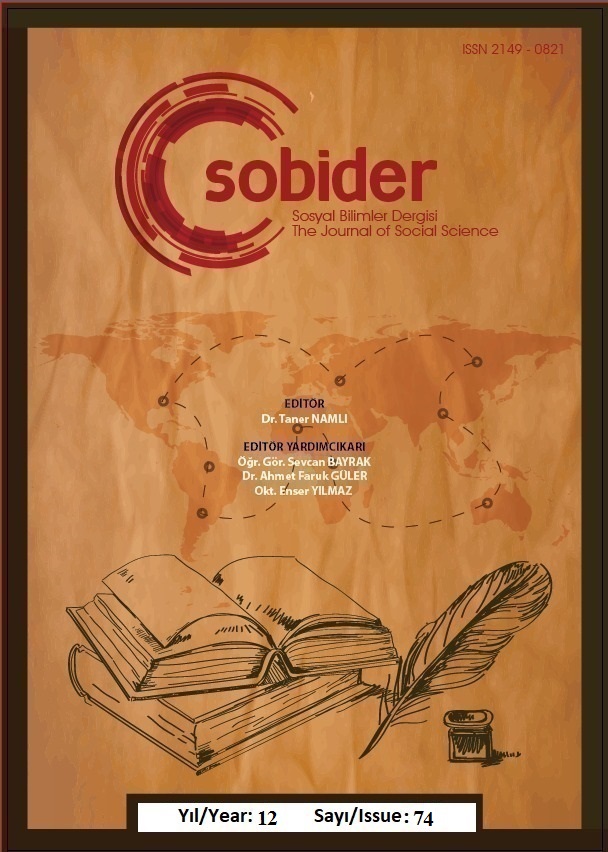KARMAŞA İÇİNDEKİ BİR BÖLGE: ARAP BAHARI SONRASI SUDAN KRİZİNİN İNSANİ VE JEOPOLİTİK BOYUTLARI, 2011–2024
Author :
Abstract
Sudan Cumhuriyeti, sömürgecilikten bağımsızlığa, ardından bir dizi askeri darbe ve iç
savaşa kadar uzanan zengin, karmaşık ve olaylarla dolu bir tarihe tanıklık etmiştir. Bu
süreçte Sudan halkı, pek çok dönüm noktası niteliğindeki olaylarla derin dönüşümler
yaşamıştır. Bunların en yenisi, devrik diktatör Ömer el-Beşir’in 30 yıllık iktidarının sona
ermesi ve Sudan’da yeni bir dönemin başlaması olmuştur. Bu çalışma, özellikle Sudan’ın
Arap Baharı protestolarının geç dönemi olarak kabul edilen Aralık 2018 gösterileri
bağlamında El-Beşir’in devrilmesinin sonuçlarını analiz etmeyi amaçlamaktadır.
Çalışma, devrimin ciddi insani ve sınır ötesi sonuçlarına odaklanmaktadır. Başka bir
deyişle, bu makale, Sudan’ın mevcut durumunu açıklamayı hedeflerken ülkenin tarihsel
arka planını yansıtmakta ve İnsan Güvenliği Yaklaşımı ile İtme-Çekme Göç Teorisi
arasındaki dinamikleri ve karşılıklı bağlantıları incelemektedir. Bu teoriler bir arada,
Sudan’daki krizin ve bu krizin Sudan halkı ile çevre bölge üzerindeki çok boyutlu
etkilerinin kapsamlı bir açıklamasını sunmaktadır. Sonuç olarak, Sudan’daki kriz,
yalnızca milyonlarca zorunlu göçmenin hayatını tehdit etmekle kalmayıp, aynı zamanda
komşu ülkelerin istikrar ve güvenliğini de riske atmaktadır.
Keywords
Abstract
The Republic of Sudan has experienced a rich, complex, and eventful history, from
colonialism to independence, followed by a series of military coups and civil wars. As a
result, the Sudanese populace has undergone profound transformations through numerous
pivotal events. The most recent of these was the fall of the 30-year rule of the deposed
dictator, Omar al-Bashir, which marked the beginning of a new era in Sudan. This study
primarily aims to analyze the fallout of al-Bashir's ousting in the context of Sudan's late
Arab Spring protests in December 2018, focusing on the severe humanitarian and cross-border consequences of the revolution. In other words, this paper seeks to elucidate the
current situation in Sudan by reflecting on the nation’s historical background and
exploring the dynamics and interconnectedness between the Human Security Approach
and the Push-Pull Migration Theory. Together, these theories provide a comprehensive
explanation of the crisis in Sudan and its multi-dimensional impacts on both the Sudanese
populace and the surrounding region. Ultimately, the Sudanese crisis threatens not only
the lives of millions of forced migrants but also the stability and security of adjacent
countries.





